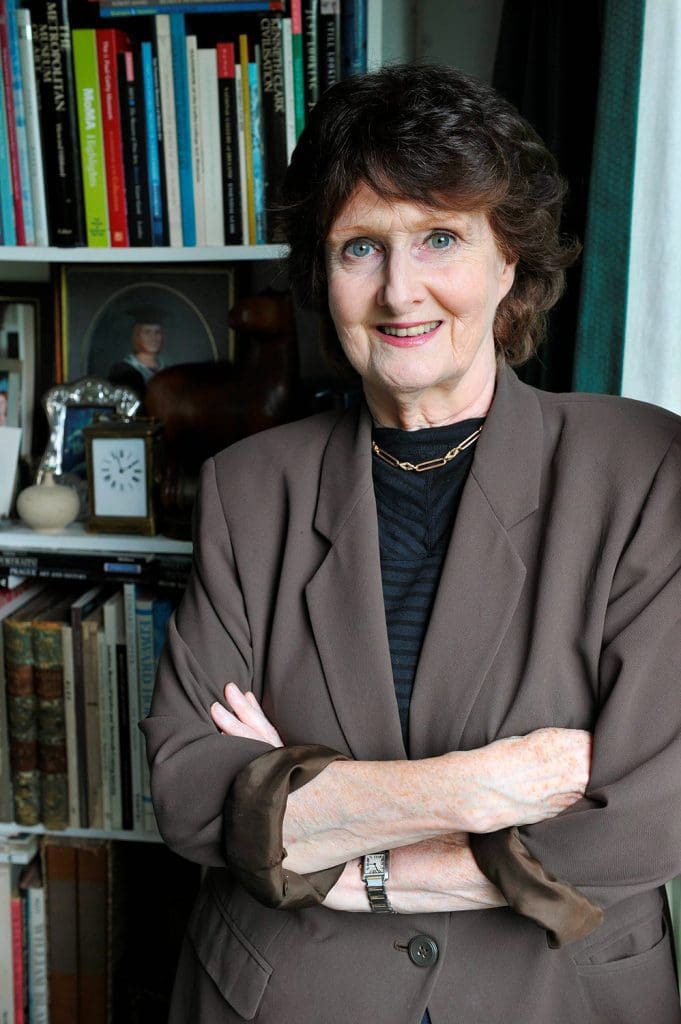(Image credit: Maura Hickey)
There are depths we cannot fathom. In this long season of losses, many of us have felt and will feel ourselves dropped into these depths with the death of loved ones. This is how many of us feel about the death of my friend and colleague, the Irish poet, Eavan Boland.
She was born in Dublin in 1944 to Frances Kelly, a noted Irish painter and Frederick H. Boland, a famous diplomat. As director of Stanford’s Creative Writing Program for 24 years, she combined her artistic and diplomatic skills to negotiate among fellows, lecturers, faculty, donors, and administrators. Her combination of toughness and tact were unparalleled. Among the many things I love about her was her ferocity. It often came as a surprise because her manner was usually gentle and restrained. But when she needed to disagree or defend her program, she could “get up on her diggers,” an Irishism she loved to use. And everybody listened. When in 1960 Khrushchev took off his shoe and pounded his desk in a meeting at the United Nations, her father, who was president of the General Assembly, got up on his diggers and broke his gavel trying to restore order. So Eavan Boland came by this fierceness naturally.
Her devoted students testify to her tenderness but also her resistance to sentimentality and cant. Her very best poems are uncompromising. “Let no love poem ever come to this threshold,” she commands in “Quarantine,” an account of a couple freezing to death in each other’s arms during the Great Famine. For other examples of Boland’s quality of soul, I think of “The Achill Woman,” “Fond Memories,” “Famine Road,” “Domestic Violence,” and “Eviction,” published in the New Yorker the day she died on April 27, 2020. She went out strong.
What remains for me are her tenderness and humor. When Thom Gunn died someone called me with the news, adding, “I hope he went out wailing.” I asked what he meant, and he said, “with drugs and sex.” Well, he did, as a matter of fact, though the account is sad for those of us who loved Thom. When I told Eavan, I said I thought Dylan Thomas may have done more harm than good with “Do Not Gentle into That Good Night.” What’s wrong with going gentle? I asked. She smiled and replied, “Yes. In bed. With yer slippers on.” Thankfully she died in Dublin, not Palo Alto, with her family at her bedside. Close enough.
My wife and I walk about the house sighing and saying the name of our dear tough, sweet friend. The only thing consoling in trying to find a little light in this darkness is knowing that scores of people all over the world are similarly grieving, most especially, her family. Loss is forever, but so is love.
Kenneth Fields’ collections of poetry are The Other Walker, Sunbelly, Smoke, The Odysseus Manuscripts, and Anemographia: A Treatise on the Wind. He is a professor of English at Stanford.


Thank you for this tender remembrance, and for guidance on the poems. I haven’t read much of her work, so am pleased to know where to start.